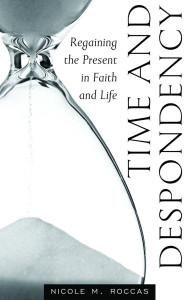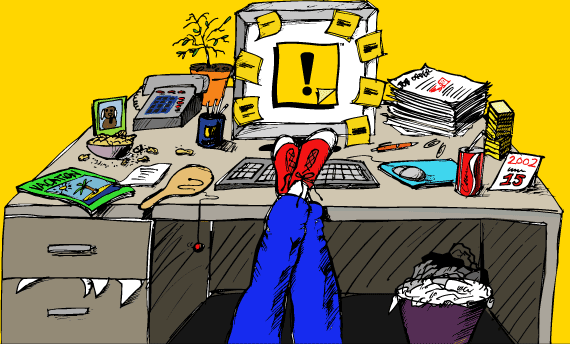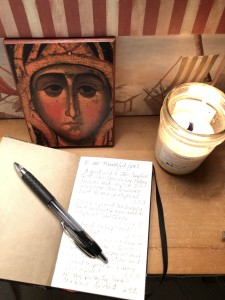 This is the fourth in my weekly series of reflections on Nicole Roccas’s book TIME AND DESPONDENCY: REGAINING THE PRESENT IN FAITH AND LIFE, which I’m reading during this season of Great Lent. If you missed my first three posts and would like to catch up, here they are:
This is the fourth in my weekly series of reflections on Nicole Roccas’s book TIME AND DESPONDENCY: REGAINING THE PRESENT IN FAITH AND LIFE, which I’m reading during this season of Great Lent. If you missed my first three posts and would like to catch up, here they are:
In Chapter 4, Nicole writes about our tendency to escape the present—to avoid our current circumstances, whether it be work, dealing with a difficult situation, relationships with other people, or anything that brings discomfort or requires effort. When we are despondent, we want to escape place and people, which is why confession and community are both important to consider at this juncture. We become restless, and we try to escape in three realms: physically, mentally, and spiritually:
The uncertainty of the present moment confronts us with an ever-unfolding reminder that we are not God, that we are not the masters of our own universe, that there are things we cannot choose or control. Whatever the present looks like at any given moment, there are only two possible ways of responding to it: to enter or exit it, to respond or despond.

Of course one of the primary means of exit—of desponding—that I fall into often involves the physical act of gluttony, or “emotional eating,” as well as over-indulging in television and laziness in general. And one that she mentions that surprised me but makes perfect sense, is “unnecessary busyness.” I love being busy, and I’m sure I use busyness as an escape at times. This might sound confusing as I know I’ve heard that being active is good medicine for depression, but I think that healthy activity and excessive busyness are two different things.
 Nicole goes into depth to expand our understanding of ways to mentally escape the present, including the understanding of two primary roots of despondency in the mind—desire and anger. As a creative (writer) I’ve always struggled with any idea of having my desires and passions stifled by the church. But understood correctly, I don’t think that’s what she is saying here, as she quotes the Dutch Catholic theologian (and one of my favorite writers) Henri Nouwen:
Nicole goes into depth to expand our understanding of ways to mentally escape the present, including the understanding of two primary roots of despondency in the mind—desire and anger. As a creative (writer) I’ve always struggled with any idea of having my desires and passions stifled by the church. But understood correctly, I don’t think that’s what she is saying here, as she quotes the Dutch Catholic theologian (and one of my favorite writers) Henri Nouwen:
Spiritual disciplines are not ways to eradicate all our desires but ways to order them so that they can serve one another and serve God.
And what does she say about anger?
The anger of despondency is the anger of thwarted wishes, of reality not aligning with our silent demands—the anger that covers the pain of a lifetime spent trying (and failing) to be one’s own god.
So what does all this discussion about living in the present and not escaping it have to do with confession and community? I really like how she tied the importance of community in with our battle against despondency:
The relational context of confession reminds us how vital it is to cultivate fruitful community in the midst of despondency, which continually pulls us toward isolationism.
 Her discussion and reflection questions helped me to reaffirm my commitment to do more spiritual (and not exclusively secular) reading during Lent, to participate as often as possible in the weekly services at church, and to continue to struggle against my tendency to escape with food/gluttony when I’m uncomfortable living in the present.
Her discussion and reflection questions helped me to reaffirm my commitment to do more spiritual (and not exclusively secular) reading during Lent, to participate as often as possible in the weekly services at church, and to continue to struggle against my tendency to escape with food/gluttony when I’m uncomfortable living in the present.
As she did with the previous chapter, Nicole gives us “Stepping Stones,” in this case, for confession and community: participate in community; initiate community; and learn to see confession as medicine. She asks the reader to consider one way to exercise the stepping stones this week. I hope to reach out to friends and neighbors who have special needs, initiating community and keeping despondency at bay.
P. S. I am really finding blessings in keeping my “thankswriting journal,” which I wrote about in last week’s post and began last Monday night.